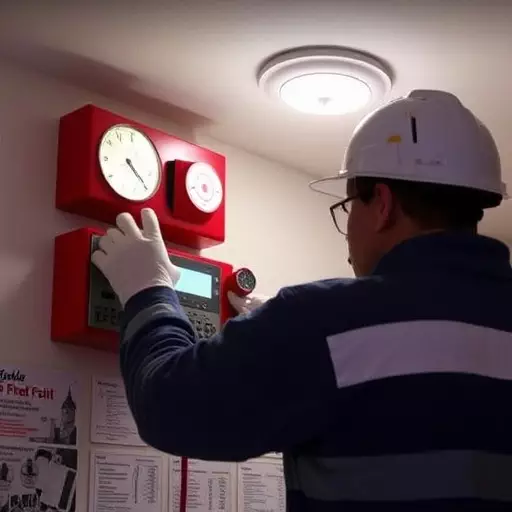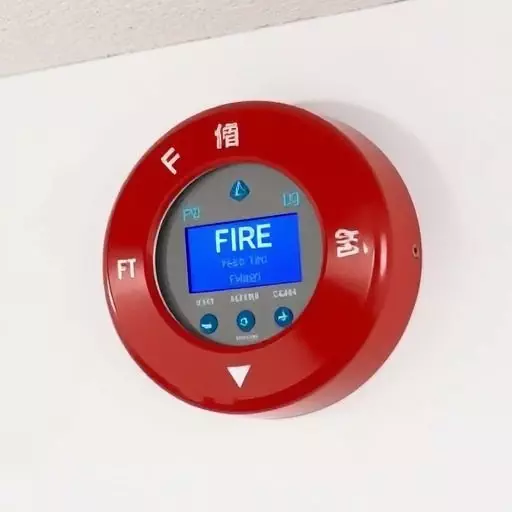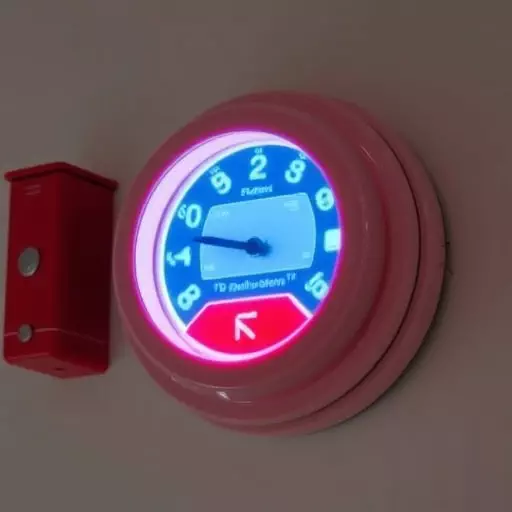Fire alarm system installation services in Jacksonville cater to both commercial data centers and residential properties, offering tailored solutions for unique environments. Commercial installations prioritize high-density equipment and stringent regulations, while residential setups focus on family safety with smoke and heat detectors linked to control panels. Regular maintenance is crucial for reliable operation, ensuring orderly evacuations and effective emergency response coordination for all building types.
“Ensuring data center safety is paramount, and a robust fire alarm system stands as a first line of defense against potential disasters. This comprehensive guide explores the intricacies of fire alarm installations tailored for both commercial and residential spaces in Jacksonville. From understanding specialized fire alarm systems designed for data centers to navigating the installation process and uncovering maintenance best practices, this article equips readers with vital knowledge. Discover how regular upkeep and strategic implementation can protect valuable assets and mitigate risks effectively.”
- Understanding Fire Alarm Systems in Data Centers
- The Process of Commercial and Residential Fire Alarm Installation
- Benefits and Best Practices for Fire Alarm System Maintenance
Understanding Fire Alarm Systems in Data Centers

Fire alarm systems in data centers play a critical role in ensuring the safety and protection of valuable equipment and sensitive information. These sophisticated systems are designed to detect fires at an early stage, providing vital seconds or even minutes for emergency personnel to respond and mitigate potential disasters. In commercial settings like data centers, specialized fire alarm installation services Jacksonville experts install tailored solutions that consider unique challenges, such as high-density equipment, complex wiring, and stringent safety regulations.
Residential fire alarm systems, while different in scale, share the same fundamental purpose of alerting occupants to potential hazards. Homeowners often seek residential fire alarm installation services to safeguard their families and properties from unforeseen risks. Professional installers ensure these systems meet the specific needs of each residence, incorporating features like smoke detectors, heat sensors, and advanced notification systems that wake residents or send alerts to smartphones.
The Process of Commercial and Residential Fire Alarm Installation

When it comes to installing a fire alarm system, whether in a commercial or residential setting, the process involves several crucial steps. Jacksonville, with its diverse landscape, requires tailored solutions for each environment. For commercial fire alarm installation, professionals assess the unique needs of the building, designing a system that complies with local fire codes and industry standards. This often includes installing sophisticated detectors and alarms strategically placed throughout the facility, connected to a control panel that ensures swift response in case of emergency.
In contrast, residential fire alarm installation focuses on creating a safe environment for homeowners. Installers install smoke and heat detectors in key areas like bedrooms and kitchens, linking them to a control panel that can be monitored locally or through smart home integration. Testing and maintenance are vital components of the process, ensuring these life-saving systems remain operational and reliable at all times.
Benefits and Best Practices for Fire Alarm System Maintenance

Fire alarm systems are critical components for any data center or building, ensuring the safety of occupants and valuable assets. Regular maintenance is essential to keep these life-saving mechanisms functioning optimally. Here are some key benefits and best practices to consider when it comes to fire alarm system maintenance.
Regular inspections by professional fire alarm installation services in Jacksonville can identify potential issues early on. This includes checking sensors for any obstructions, testing battery backup systems, and verifying proper communication protocols between alarms and emergency personnel. For commercial or residential properties alike, staying proactive with maintenance reduces false alarms and ensures the reliability of the system during an actual emergency. Such practices are invaluable, as a well-maintained fire alarm can provide vital seconds or even minutes for orderly evacuation and emergency response coordination.


